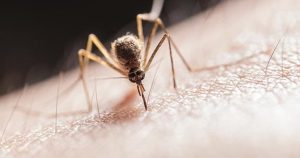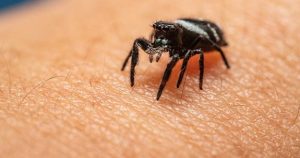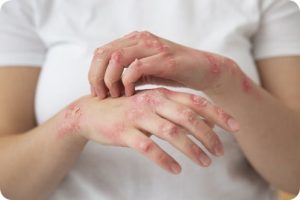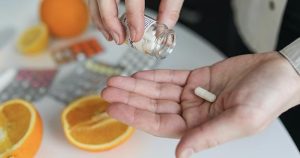Shop
Showing 17–32 of 54 results
-

Thrush in men and women
£35.00 Read moreSuffering from Thrush? Let us help you.
What is Thrush (Yeast infection)?
Thrush, also known as candidiasis, is a fungal infection caused by the overgrowth of Candida yeast, most commonly Candida albicans. Thrush can occur in various parts of the body, including the mouth (oral thrush), vagina (vaginal thrush), and other moist, warm areas of the skin.
Although it is uncomfortable, there are several ways to manage it, and there is little risk to your long-term health. Some individuals do, however have persisting symptoms that might be more challenging to cure. Your symptoms can be effectively treated by our clinicians, who can also assist you in determining the origin of your thrush.
Given that the vagina typically contains low concentrations of candida albicans, thrush is considered to affect many women at some point in their life. Once a woman has had her first period and after going through the menopause, the likelihood of developing thrush decreases. Men are also susceptible, with symptoms typically centered around the penis head.
-

Weight Loss
£35.00 Read moreWhat is weight loss?
Weight loss refers to the reduction of total body mass, primarily through the loss of body fat, but also through the loss of muscle, bone mineral, and other tissue. It can be achieved intentionally, through diet, exercise, and lifestyle changes, or unintentionally, as a result of an underlying health condition. We do not prescribe weight loss medication, but can give you advise on weight loss.
-

Wasp or hornet sting
£35.00 Read moreWhat is a Wasp or Hornet sting?
Wasp or hornet stings can be painful and, in some cases, lead to severe allergic reactions. Both wasps and hornets are types of stinging insects, and their stings deliver venom that can cause immediate pain, swelling around the bite, and other symptoms for up to one week, which is not anything to worry about as it is a minor reaction. If you experience a major anaphylaxis reaction, which includes swollen face, difficult breathing and dizziness, call 999 immediately.
-

Mosquito bites
£35.00 Read moreSuspecting a Mosquito Bite? Let us help up you.
What is a Mosquito Bite?
Mosquito bites are from mosquitos, however they rarely cause issues in the united kingdom. They can transmit a variety of dangerous diseases, like malaria in various parts of the world. They usually form as tiny red lumps in the biting region and are quite itchy. Blisters packed with fluid can also form in some circumstances. Its only the female mosquitoes that bite humans and not the males. The region can become painful, itchy and swollen from any insect bite. Mosquito bites are particularly bothersome on their own and may usually be treated with an over-the-counter treatment to relieve itching and discomfort.
-

Insect Bites And Stings
£35.00 Read moreWorried that you have a Insect Bite or Sting? Let us help you.
What is a an Insect Bite/Sting?
Insect bites or stings generally present as a red lump, which can be itchy and painful. Most bites diminish after a few hours or days and can be treated with over the counter medication from any pharmacy. If you did not see the bite or sting occur, it is challenging to recognise, but treatment for bites and stings are similar.
If the bite/sting becomes itchy, swollen and painful, our clinicians can prescribe antibiotic treatment. It is important to attach pictures (non-intimate areas) if you choose the telephone consultation option. Pictures are not required for video consultations.
-

Headaches and Migraines
£35.00 Read moreWhat is a Headache/Migraine?
Headaches and migraines are common neurological conditions that can cause significant discomfort and impact daily life. While headaches are typically less severe, migraines can be debilitating and are often associated with other symptoms like nausea and sensitivity to light. People who suffer from them may have frequent bouts with a variety of unpleasant symptoms that can render them incapacitated. Migraines are frequently occurring that affects up to eight million individuals in the UK. The frequency of episodes can range from several times per week to months or even years between each.
-

Conjunctivitis
£35.00 Read moreWorried about Conjunctivitis? Let us help you.
What is Conjunctivitis?
Conjunctivitis, commonly known as pink eye, is an inflammation or infection of the conjunctiva, the thin, transparent membrane that lines the inside of the eyelid and covers the white part of the eye. It can affect one or both eyes and is characterised by redness, irritation, and discharge.
This is one of the most prevalent eye illnesses affecting people in the UK. It’s caused by a bacterial or viral infection (known as infective conjunctivitis), or an allergic reaction, and it’s highly contagious; catching it early and preventing it from spreading to others is critical.
-

Stye
£35.00 Read moreWorried about a Stye? Let us help you.
What is a Stye?
A stye (hordelum) is a lump on the inner or outer surface of your lower eyelid. The bump is usually small, painful, and pus-filled. It might look like a pimple. A mild stye might turn into a chalazion, which is a larger swelling/infection. Styes are infections that affect the glands in your eye and the hair follicles of your eyelashes. They are most usually caused by the staphylococcal bacterium. As these glands are responsible for keeping your eyes suitably moisturised, a stye can cause stinging and red eyes. A clogged meibomian gland, which produces a chemical that helps keep your eye moist, could be the cause of a stye on the inside of your eye. This gland can get infected, causing swelling in your lower eyelid.
-

Psoriasis
£35.00 Read moreSuffering from Psoriasis? Let us help you
What is Psoriasis?
Psoriasis is a chronic autoimmune skin condition that causes the rapid buildup of skin cells, leading to scaling on the skin’s surface on the knees, elbows, trunk, and scalp. Inflammation and redness around the scales are common, and the condition can range from mild to severe.
Psoriasis is not contagious, but it is a lifelong condition with no cure that can have significant physical and emotional effects. It can be uncomfortable and can affect your everyday life. The problem tends to flare up for a few weeks or months, then can subside for a while. Infections, burns and certain medicines are common triggers in patients who have a hereditary susceptibility to psoriasis. There are treatments available for managing symptoms. You can also experiment with different lifestyle habits and coping skills to help you live a better life with psoriasis.
-

Erectile Dysfunction
£35.00 Read moreWhat is Erectile Dysfunction?
Erectile dysfunction is when you have trouble getting or retaining an erection, due to restricted blood flow to the penis. While erectile dysfunction is a sensitive subject, it can afflict any male and is usually nothing to be concerned about. Erectile dysfunction occurs when blood flow to the penis is restricted or when blood vessels find it difficult to control the flow in and out of the penis. Erectile dysfunction can also be a symptom of an underlying physical or mental health problem.
-

Irritable Bowel Syndrome (IBS)
£35.00 Read moreWhat is Irritable bowel syndrome (IBS)?
Irritable Bowel Syndrome (IBS) is a common, chronic gastrointestinal disorder that affects the large intestine (colon). IBS causes abdominal pain, cramping, bloating, gas and change in bowel habits; the intensity of the symptoms varies from person to person. If your digestive system is working properly, food is moved through it by compressing and releasing the intestine’s muscles. If you have IBS, this does not occur as it should, resulting in discomfort. It is unknown what causes it, however it is a long-term ailment. There is presently no cure, however it can typically be controlled with medication.
Unlike some other gastrointestinal conditions, IBS does not cause damage to the digestive tract or increase the risk of colorectal cancer.
-

Acid Reflux/Indigestion/Helicobacter pylori (H.pylori) eradication
£35.00 Read moreWhat is Acid Reflux/Indigestion?
Acid reflux, also known as indigestion or heartburn, is a condition where stomach acid flows back into the esophagus. This can lead to a burning sensation in the chest, often referred to as heartburn. Indigestion typically involves discomfort or pain in the upper abdomen and may include symptoms like bloating, belching, and nausea.
The lower esophageal sphincter (LES) is a muscle that separates the esophagus from the stomach. It normally opens to allow food to enter the stomach and then closes to prevent the backflow of stomach acid into the oesophagus. When the LES doesn’t function properly, stomach acid can rise into the oesophagus, causing the symptoms associated with acid reflux.
What is Helicobacter pylori (H.pylori)?
Helicobacter pylori (H. pylori) is a type of bacteria that infects the stomach lining and is a common cause of peptic ulcers and gastritis. It can lead to more serious conditions like stomach cancer if left untreated. The bacterium is spiral-shaped, which helps it penetrate the mucus layer of the stomach and survive in its acidic environment.
If you have a positive test for H-pylori, we can provide you with treatment, so please consult with us today (add a photo of your positive results). If you suspect you have H-pylori, you can buy a test online and if positive, we can treat you.
-

Private prescription
£14.95 Add to basketYou can get your private prescription directly on your mobile/email and then to the medical pharmacy
-

Gastroenteritis
£35.00 Read moreSuffering from Gastroenteritis? Let us help you.
What is Gastroenteritis?
Gastroenteritis, often referred to as the “stomach flu,” is an inflammation of the stomach and intestines, typically caused by a viral, bacterial, or parasitic infection. It leads to symptoms such as diarrhea, vomiting, abdominal pain, and cramping. Gastroenteritis is a common condition that can affect people of all ages, but it can be particularly serious in young children, the elderly, and individuals with weakened immune systems due to the risk of dehydration. Sometimes, patients may experience a pain in their limbs, lack of appetite and headaches. Food poisoning (when hazardous bacteria enters your gut) and the norovirus are the most common causes in adults.
-

Diarrhoea
£35.00 Read moreSuffering from Diarrhoea? Let us help you
What is Diarrhoea?
Diarrhoea is a condition characterised by the frequent passage of loose, watery stools. It can occur as a symptom of various underlying conditions or as a standalone issue. Diarrhoea can be acute, lasting a few days, or chronic, persisting for weeks or longer. While it is often mild and resolves on its own, severe or persistent diarrhoea can lead to dehydration and may require medical attention.
-

Constipation
£35.00 Read moreSuffering from Constipation? Let us help you.
What is constipation?
When your stools (also known as faeces) do not travel through your digestive system properly, you will have constipation. The faeces spend to much time in the colon resulting in to much water being absorbed and they become hard and dry. This makes passing difficult, and at times unpleasant. It’s typically nothing to be concerned about, and it can usually be treated at home with easy dietary and lifestyle adjustments.